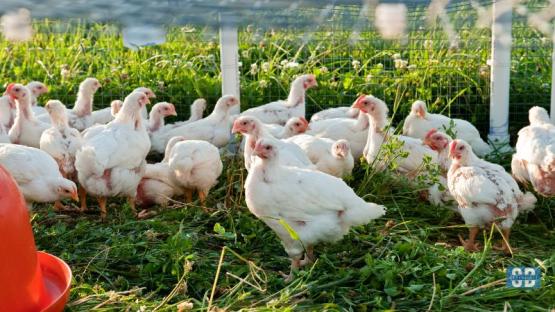Raising chickens isn’t just for farmers anymore. Whether you’re on a rural property or nestled in a suburban backyard, chickens are a practical and rewarding addition to your lifestyle. They provide fresh eggs, contribute to your garden, and add a unique charm to your environment. But before you jump in, it’s essential to understand what it takes to raise healthy, productive chickens in any setting.
Choosing the Right Chicken Breed
Not all chickens are created equal. Some breeds are better suited to backyard life, while others thrive in open, barnyard conditions. For urban and suburban environments, quieter, more docile breeds like Orpingtons, Australorps, and Silkies are excellent. These breeds are not only friendly but also adapt well to confined spaces.
If you’re working with more land, you might consider hardy, dual-purpose breeds like Rhode Island Reds or Plymouth Rocks. These birds produce both eggs and meat and are known for their resilience. Choose based on your climate, space, and goals (egg-laying, meat, or both).
Setting Up a Coop That Fits Your Space
A coop is more than a shelterâit’s the heart of your chicken operation. In tight spaces, compact coops with enclosed runs provide protection and mobility. In rural areas, larger coops with free-ranging capabilities allow birds to explore.
Ventilation is crucial regardless of size. Your coop should have windows or vents to allow fresh air in and moisture out. Proper insulation, especially in extreme climates, ensures birds stay healthy year-round. Don’t forget secure locks to keep predators at bay.
Feeding and Nutrition Essentials
Chickens are omnivores. A balanced diet includes grains, protein, calcium, and access to grit. Commercial feed typically contains all the nutrients your flock needs. Layer feed is ideal for hens producing eggs, while starter feed is best for chicks.
Supplement their diet with kitchen scraps like vegetables, rice, or bread, but avoid onions, chocolate, and anything moldy. Free-ranging birds will naturally forage for insects and greens, which can reduce feed costs and improve egg quality.
Managing Space and Environment
Every chicken needs at least 2-3 square feet inside the coop and 8-10 square feet of outdoor space. Overcrowding can lead to stress, feather pecking, and disease.
In confined spaces, consider vertical setups with perches and ramps. Provide areas for dust bathing, which helps control mites and keeps feathers clean. Clean the coop weekly and change bedding often. Pine shavings or straw are common choices.
Incorporating Mobility for Better Flock Health
Mobile coops, also called chicken tractors, are a game-changer. These portable units allow you to move your flock to fresh ground regularly, reducing the buildup of waste and pests while giving your chickens access to new forage.
A good resource for this is The Mobile Chicken House . Their designs cater to backyard hobbyists and small farmers alike, helping improve flock health while minimizing maintenance.
Protecting Against Predators and Weather
Predators like raccoons, foxes, hawks, and even neighborhood dogs can threaten your flock. Reinforce your coop with hardware cloth (not chicken wire) and bury it 12 inches underground around the perimeter to deter diggers. Lock your coop at night.
Weather also matters. Chickens tolerate cold better than extreme heat. Provide shade and plenty of water during summer, and ensure they have a dry, draft-free place in winter. Heated waterers and extra bedding help when temperatures dip.
Daily Care and Seasonal Adjustments
Chickens aren’t high-maintenance, but they do require daily attention. Feed them, refill water, collect eggs, and check for signs of illness. Watch for symptoms like lethargy, abnormal droppings, or pale combs.
In winter, egg production may drop. Using a light timer to simulate daylight hours (around 14 hours per day) can help. During molting season, chickens lose feathers and stop laying temporarily. This is normal and requires extra protein to help them recover.
Eggs, Meat, and Sustainability Benefits
Raising chickens gives you control over what goes into your food. Fresh eggs from backyard hens often contain more omega-3 fatty acids and vitamins than store-bought ones. If you choose to raise meat birds, you’ll find the flavor and texture superior.
Chickens are also fantastic composters. They turn food waste into fertilizer, scratch up garden beds, and help control pests. According to the USDA, integrating chickens into your household can significantly reduce food waste.
Legal and Community Considerations
Before setting up your flock, check local ordinances. Many cities allow hens but ban roosters due to noise. There may be restrictions on the number of birds or the placement of coops.
Consider your neighbors. Keep coops clean and odor-free. Offer eggs occasionally as goodwill gestures. A little courtesy goes a long way in keeping peace in the community.
Final Thoughts
Whether you’re tending chickens in a backyard or managing a flock in a pasture, the fundamentals remain the same: provide good food, clean shelter, and a watchful eye. Chickens are surprisingly adaptable and rewarding animals that give back in eggs, meat, and companionship.
With the right setup and a bit of daily care, you can enjoy the benefits of poultry farming wherever you live. From backyard to barnyard, it’s not only doableâit’s downright delightful.







